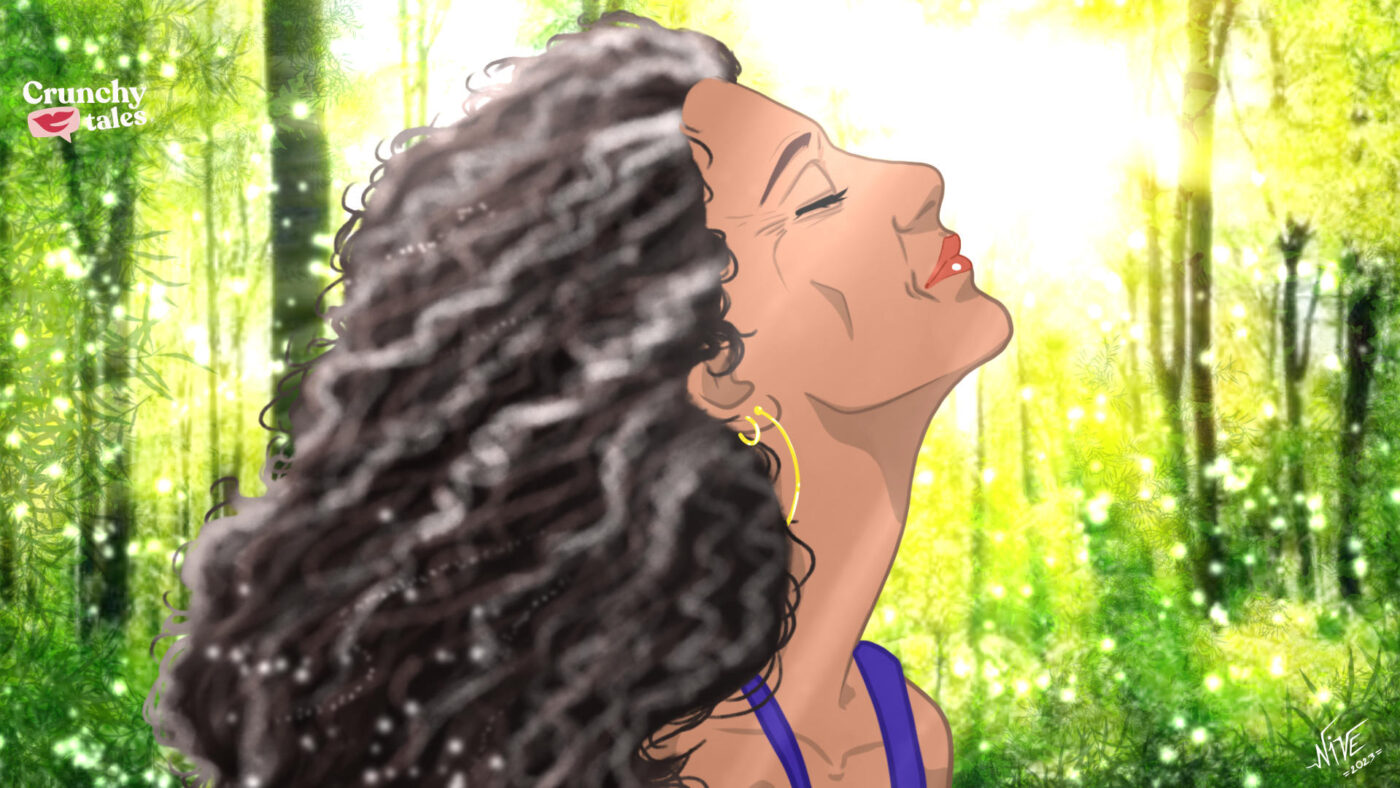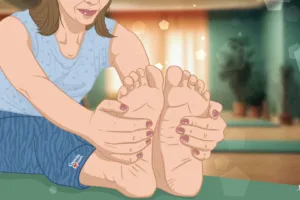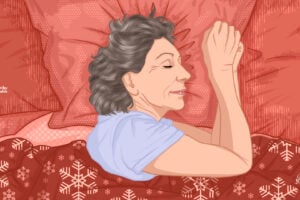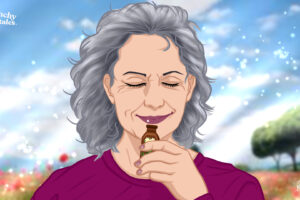Why Forest Bathing is the Perfect Midlife Self-Care Practice
In today’s fast-paced world, it’s easy to get caught up in the hustle and bustle of daily life. We’re constantly juggling work, family, and social commitments, leaving little time for self-care. But as we approach midlife, it’s more important than ever to prioritize our health and well-being. That’s where forest bathing comes in.
This Japanese practice, also known as shinrin-yoku, involves immersing yourself in nature and taking in the sights, sounds, and smells of the forest. It’s been shown to have numerous health benefits, including reducing stress, improving mood, and boosting the immune system.
As a psychotherapist, I found it very effective on myself, too. In order to be able to work with my clients’ emotional difficulties I have to be deliberate about tending to my own and forest bathing has been very helpful.
Not only does it offer a chance to slow down and connect with nature, but for those who may be navigating a midlife crisis or questioning their purpose and direction in life, forest bathing can offer a chance for introspection and reflection. And for those of us over 50, it’s the perfect self-care practice: if you load your backpack with some extra weights you can even enjoy the thrill of rucking while doing meditation.
The magic power of forest bathing
Maybe it’s because I’ve been living in New Hampshire for many years, but I’ve always had an affinity with the woods. Even as a kid, I noticed that just strolling through the forest left me feeling better able to cope with difficult feelings.
Everything just seemed less urgent and raw. Being among mosses, lichen and pine needles offered me respite from my daily angst. The bird chatter took my mind off of my worries and reminded me that there was a whole world out there that existed beyond my own life.
So I was delighted when I found out my woods walks had a name: forest bathing, a meditative walk among trees with plenty of blessings for our wellbeing.
Research on forest bathing and its effects on midlife health
Research on forest bathing has been ongoing for several decades, and the results are clear: spending time in nature has numerous health benefits.
Firstly, forest bathing can be similar to natural aromatherapy. Native evergreens release a high concentration of phytoncides—airborne essential oils that can lower blood pressure and provide a natural immunity boost.
Forest bathing can also improve mood and cognitive function. One research published in the International Journal of Immunopathology and Pharmacology found that spending time in a forest can increase natural killer cell activity, which is important for fighting cancer and other diseases.
Another study published in the Journal of Environmental Psychology found that forest bathing can improve mood and reduce feelings of anxiety and depression, too.
Spending time in nature can improve creativity and cognitive function, as well as a sense of calm and relaxation, which can be especially beneficial for those dealing with mental health issues.
In particular, being in nature can help our stress levels because we are surrounded by fractals. Fractals are simple, repeating patterns in nature–sometimes called “nature’s fingerprints”– that our brain favours. A growing body of research has investigated the therapeutic effects of them on the human brain. Using Functional magnetic resonance (fMRI) and other physiological stress measurements, researchers found that looking at fractals can reduce stress levels by 60% according to Project Factor.
You may not even realize you’ve been enjoying fractals. Ever find yourself staring at the leaves on a tree, the clouds, or other repeating patterns in nature? The ferns I usually see during my morning walks are a great example of those kinds of patterns.
Sounds hippy, but forest bathing makes sense
If we understand how our brain is hardwired, it also makes sense that having actual physical contact with the earth is vital for good health.
Words like “Grounding” or “Earthing” are the newest addition to my mental health toolbox. Maybe I’m late to the game, but this spring I’ve been experimenting with them going barefoot and it’s lovely.
As humans, we have an electrical charge, just like little batteries. That’s how our heart knows to beat. The theory is that we are constantly building up a positive charge which has little opportunity to neutralize because of our modern lifestyles. We rarely ever touch the ground without the buffer of our shoes. This state of constant positive charge leads to inflammation. The earth holds a negative charge, so simply putting your bare feet on grass helps neutralize the charge that builds up.
If you’re looking for a way to prioritize your self-care in midlife, consider giving forest bathing a try.
Not convinced, yet? Verla Fortier, one of my favourite guests on my Podcast – Zestful Aging, was a high-powered nurse researcher until she contracted Lupus. By adhering to a rigorous schedule of outside time in her native Canada, she’s discovered a way to address her symptoms.
Forest Bathing Resources and Retreats
If you’re interested in learning more about forest bathing or want to experience it in a guided setting, there are several books, resources and retreats available. Here are a few to consider:
1. Association of Nature and Forest Therapy Guides and Programs
This organization trains and certifies forest therapy guides and offers a directory of guides and programs around the world.
2. Forest Bathing: How Trees Can Help You Find Health and Happiness by Dr Qing Li
The definitive and by far the most popular guide to the therapeutic Japanese practice of shinrin-yoku. In this beautiful book, featuring more than 100 colour photographs from forests around the world, including the forest therapy trails that crisscross Japan, Dr Qing Li, the world’s foremost expert in forest medicine, shows how forest bathing can help you reach a place of greater calm and wellness
3. Forest Bathing International
This organization offers guided forest bathing retreats and workshops in various locations around the world promoting greater levels of public health, wellness and ecological awareness by making this practice widely available and accessible.
Conclusion: Forest Bathing as a Vital Tool for Midlife Self-Care
In conclusion, forest bathing is a powerful tool for midlife self-care. It offers numerous physical and mental health benefits, provides an opportunity for introspection and reflection, and can be easily incorporated into any self-care routine.
Whether you’re new to the practice or a seasoned pro, it’s a simple and effective way to connect with nature and support your overall health and happiness.
So, engage your senses. Touch the trees, smell the flowers, listen to the birds, and feel the sun on your skin. By the way, don’t forget to bring insect repellent with you. You don’t want your experience in the woods being spoilt by mosquitos.
Like this post? Support Us or Sign up to our newsletter to get more articles like this delivered straight to your inbox!
If being around nature lights you up, join Nicole and fellow Zestful Aging Podcast listeners for a trip to Finland in January 2024. You will be spending time in Lapland to see the Northern Lights as well as visiting a wildlife preserve where polar bears live. Finland enjoys some of the cleanest water and air on the planet and you will have our own guide to take advantage of all “the happiest country” has to offer. Find out more on
ZestfulAging.com.






